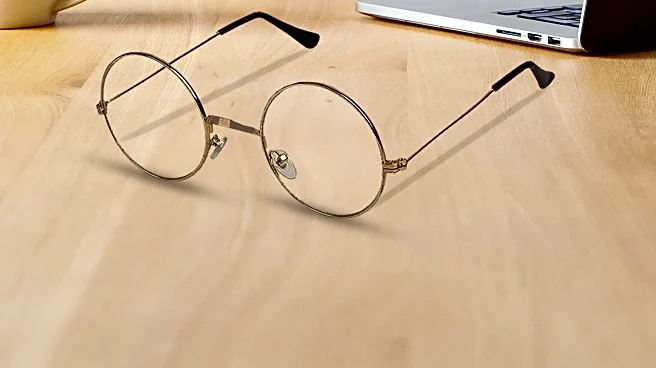What's Happening?
Dr. James Kelly, an NYC eye surgeon, has warned against the use of blue-light glasses, stating that there is no serious scientific evidence supporting their effectiveness in reducing eye strain or improving sleep. Instead, Kelly recommends several strategies to alleviate digital eye strain, including the '20-20-20' rule, using preservative-free artificial tears, enhancing workstation ergonomics, ensuring correct eye-care prescriptions, and limiting screen time before bed.
Why It's Important?
Digital eye strain affects a significant portion of the population due to increased screen time, especially during the COVID-19 pandemic. Kelly's advice challenges the popular belief in blue-light glasses, which have become a booming industry despite lacking scientific backing. His recommendations focus on practical solutions that address the root causes of eye strain, potentially leading to better eye health and improved sleep quality for many individuals.
What's Next?
As awareness grows about the ineffectiveness of blue-light glasses, consumers may shift towards adopting Kelly's recommended practices for eye care. This could influence the eyewear industry to focus on scientifically proven solutions and encourage further research into effective methods for reducing digital eye strain. Eye health professionals may also play a role in educating the public about proper screen habits and eye care.
Beyond the Headlines
The discussion around blue-light glasses highlights the broader issue of consumer reliance on products marketed with unverified claims. It underscores the importance of evidence-based practices in health and wellness industries, prompting consumers to critically evaluate the efficacy of wellness products.









